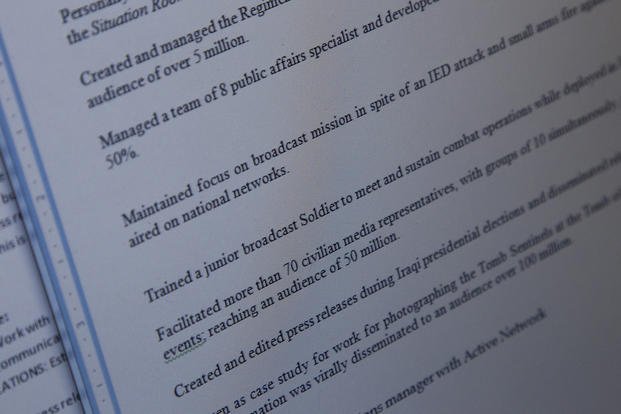"Lying is like alcoholism. You are always recovering." -- Steven Soderbergh
One of the main reasons people lie on their resumes is fear -- fear of not measuring up, fear of being left behind, fear that a more qualified candidate will get the job. It is so tempting to stretch the truth or insert a little lie to help get noticed in this competitive job market that many people succumb to it.
While the fear is understandable, it doesn't excuse falsifying a resume to secure a job. And ask anyone who has been caught about how easy it is to give yourself away. You may flub up during an interview if asked about a skill or experience you claim to possess, or if offered the job, you could be asked to perform a skill that was falsely listed on your resume. Even without being caught, you might be nervous about getting found out, making it difficult to excel in your position.
And if your employer finds out, you would likely be fired. This could happen years down the road, when you think your resume has long been forgotten. Once an employer discovers a fallacy on your resume, you will no longer be thought of as trustworthy, even if you were considered a valued employee for years. Then, when searching for another job, you will have to explain what happened with your previous employer. Word about your deceit may spread in your industry, tarnishing your reputation and making it difficult to find a new position.
As you can see, the consequences of lying on your resume can snowball and follow you throughout your career.
Recent news coverage of high-profile professionals caught lying on their resumes has led employers to step up their background-check processes. Employers are more closely checking references and verifying data such as education, salary history, job titles and employment dates.
Ask Yourself These Questions to See If Your Resume Is Honest
- Did you invent a degree or other industry-related credentials?
- Did you exaggerate your academic performance?
- Did you stretch employment dates to cover gaps?
- Did you fabricate an experience that never occurred?
- Did you substitute a more favorable job title for any of your positions?
- Did you omit experience?
- Did you exaggerate accomplishments or job duties?
- Did you use creative wording to embellish your experience (e.g., stating that you were the top salesperson when you were, in fact, the company's only salesperson)?
- Did you overstate skill levels?
If you answered "yes" to any of the above, then you need to revisit your resume and honestly describe your qualifications.
What If Your Qualifications Don't Perfectly Match the Opening?
If you feel that you would be able to perform a job you want to apply for but don't have the exact credentials they're looking for, then demonstrate that you're a fast learner, citing examples from your work history to prove you rapidly learn new concepts. Enroll in a training class, engage in independent study or volunteer your services at a charity to start developing your skills -- legitimately add to your resume.
If you lack a degree, explain the value of your real-world experience and your history of past accomplishments. Lead your resume with a Qualifications Summary section, which lets you immediately state your top credentials. Use your cover letter to explain how you are otherwise qualified and that you're passionate about your career choice.
Very few of us have a perfect career history. Don't be so hard on yourself; you shouldn't feel you need to lie, exaggerate, mislead or embellish on your resume. Instead, create an honest resume that focuses on what you do offer potential employers. Your integrity, and quite possibly your job security, will remain intact.
Want to Know More About Veteran Jobs?
Be sure to get the latest news about post-military careers as well as critical info about veteran jobs and all the benefits of service. Subscribe to Military.com and receive customized updates delivered straight to your inbox.











